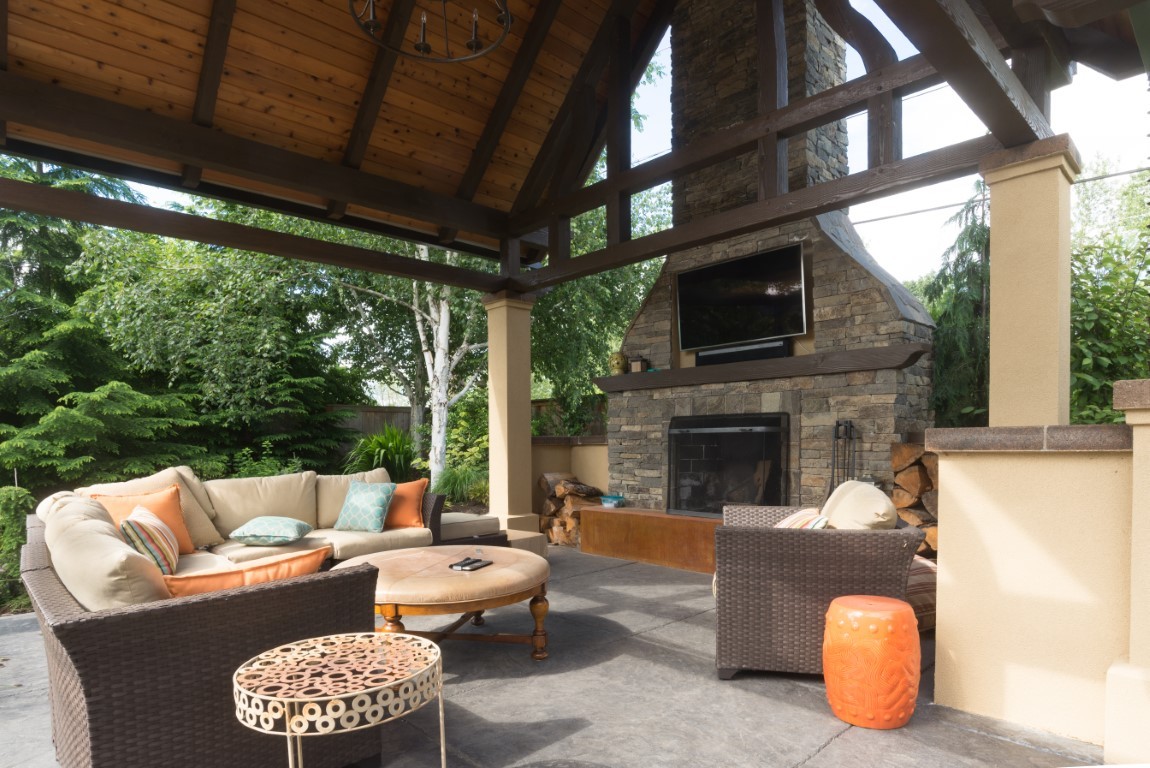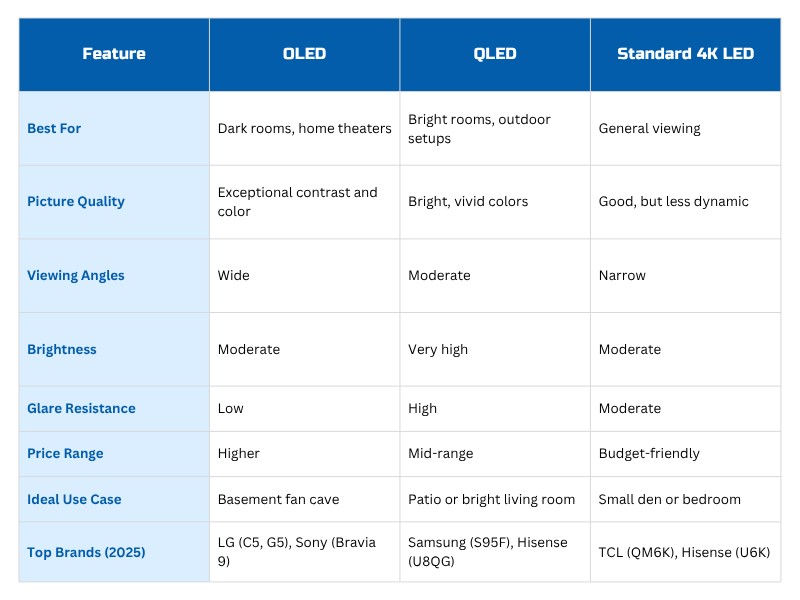Game Day Goals: Choosing the Right TV for Your Space in 2025
Whether you're watching SEC football on Saturdays or the rooting for the Falcons on Sundays, game day in the South is a serious tradition. No matter what team your house roots for one thing is clear—your TV matters.
With large screens more affordable than ever, choosing the right technology can make all the difference in how you experience the game. But with terms like OLED, QLED, and 4K floating around, how do you know which one fits your space and viewing style?
Understanding OLED: Deep Contrast for Darker Rooms
Let's start with OLED, which stands for Organic Light Emitting Diode. OLED TVs are known for their deep blacks and vibrant colors, thanks to pixels that light up individually. This makes them ideal for dark rooms or home theaters where contrast really shines. If you're watching late-night games or want a cinematic feel, OLED delivers exceptional picture quality. However, they tend to be more expensive and may not be the best choice for bright, sunlit spaces like a living room with large windows or a covered patio.
QLED for Bright Rooms and Outdoor Viewing
QLED, or Quantum Dot LED, is Samsung's answer to OLED. These TVs use a backlight combined with quantum dots to produce bright, vivid images. QLEDs are great for well-lit rooms and outdoor setups because they handle glare better and offer higher brightness levels. If you're hosting a backyard tailgate or watching the game in a bright family room, QLED might be your MVP. They also tend to be more budget-friendly than OLED, especially in larger sizes.
What 4K Really Means for Sports Fans
Then there's 4K resolution, which refers to the number of pixels on the screen, roughly four times more than standard HD. Most OLED and QLED TVs are 4K by default, but not all 4K TVs are created equal. Look for features like HDR (High Dynamic Range), which enhances contrast and color, and refresh rates of 120Hz or higher for smoother motion during fast-paced plays. These specs are especially important for sports fans who want to see every pass, tackle, and touchdown without blur or lag.
How to Choose the Right Size for Your Space
Size also plays a role. With 65-inch and larger TVs becoming more affordable, many Metro Atlanta homeowners are opting for big screens to match their big game energy. But bigger isn't always better. Consider your room size and seating distance. A 75-inch screen might be perfect for a basement media room, but overwhelming in a small den. For outdoor viewing, make sure your TV is rated for exterior use and installed with proper electrical support, something a licensed electrician can help with.
Final Thoughts: Match Your TV to Your Game Day Goals
Ultimately, the best TV for your game day setup depends on your space, lighting, and budget. Whether you're building a fan cave in Holly Springs or setting up a patio party in Woodstock, understanding the differences between OLED, QLED, and 4K helps you make a smart investment. And if you're adding outdoor outlets, mounting a screen, amping up your audio game, or upgrading your home's wiring, H&H Electric is here to help you get game-day ready.


